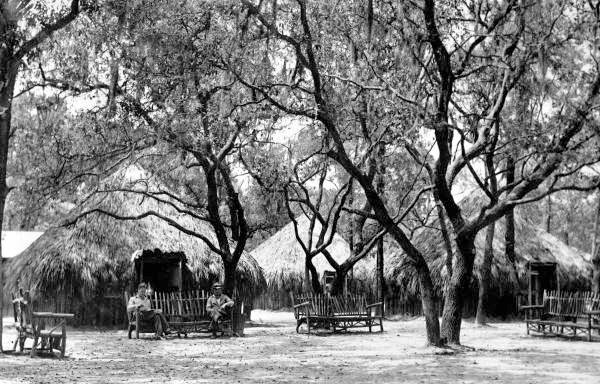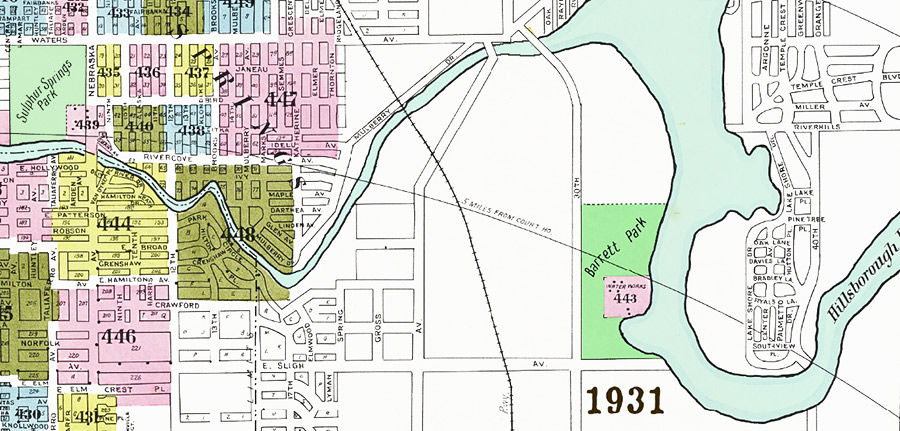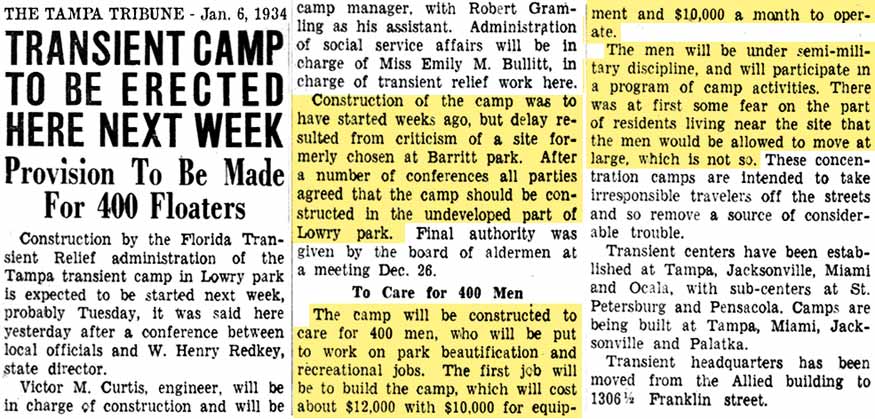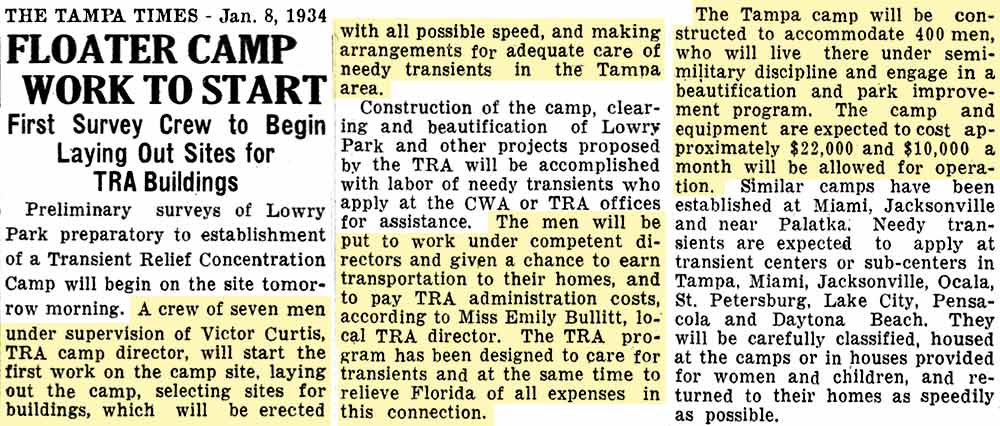|
THE FEDERAL EMERGENCY RELIEF TRANSIENT CAMP AT LOWRY PARK |
||||||||||||||||||||||||||||||||||||||||||||
|
In Jan. 1934, work began on on building a Federal Emergency Relief camp on the grounds. The Federal Emergency Relief Administration (FERA) was the new name given by the Roosevelt Administration to the Emergency Relief Administration (ERA) which President Roosevelt had created in 1933. Under Roosevelt, the agency gave loans to the states to operate relief programs during the Great Depression. FERA's main goal was to alleviate household unemployment by creating new unskilled jobs in local and state government. Jobs were more expensive than direct cash payments (called "the dole"), but were psychologically more beneficial to the unemployed, who wanted any sort of job, for self-esteem, to play the role of male breadwinner. From May 1933 until it closed in December, 1935, FERA gave states and localities $3.1 billion (60.4 billion in 2021). FERA provided work for over 20 million people and developed facilities on public lands across the country.
Photos from Florida Memory at Florida State Archives.
Group of FERA cabanas on the grounds of Lowry Park, north of Sligh Avenue in April,
1935.
Initially, Barritt park had been chosen for the camp, but due to criticism it was changed to an undeveloped area of Lowry Park. Barritt Park surrounded the City's waterworks station on the Hillsborough River.
THE PLANS AND CONSTRUCTION OF THE CAMP The camp would care for about 400 single men who would work on park beautification and recreational jobs. The camp was expected to cost about $12,000 to build, with the cost of equipment for the camp at $10,000 and $10,000 a month to operate. This would all be federally funded. The article claims that the camp would be under "semi-military discipline, and there was at first some fear by those living in the area the the men would be troublesome vagrants and allowed to move around freely in the area. This was not so, and the claim that the camp would be under semi-military discipline was later also denied. It may have only been a rumor started to ease the worries of the residents of the area. The articles claim that the camp would be under "semi-military discipline, and there was at first some fear by those living in the area the the men would be troublesome vagrants and allowed to move around freely in the area. This was not so, and the claim that the camp would be under semi-military discipline was later also denied. It may have only been a rumor started to ease the worries of the residents of the area.
THIS SECTION IS IN PROGRESS
|



